 Charter Communications ‘productive negotiations’ with New York’s Public Service Commission have deteriorated.
Charter Communications ‘productive negotiations’ with New York’s Public Service Commission have deteriorated.
On Monday, Charter Communications filed a Motion for Stay to block the regulator’s July order revoking Charter’s merger with Time Warner Cable and requiring the cable company to file an orderly exit plan with the state no later than Dec. 24.
“Discussions have, so far, not resulted in a settlement,” the company admitted in the legal filing.
Get Out of New York
Calling the order “draconian” and against the public interest, Charter all but accused the Commission of being petty for throwing the country’s second largest cable company out of the state over what it called “the Commission’s revisionist interpretation” of the agreement to expand cable broadband service to unserved parts of the state. It called the Commission unreasonable for not giving the company due process, setting an unreasonable deadline to formulate an exit from the state, and violating the company’s 1st Amendment rights.
 “The Revocation Order imposes a draconian penalty on Charter’s New York operations, commanding Charter to undo a significant portion of a multi-billion dollar merger the Commission approved over two-and-a-half years ago and purporting to evict Charter from the State where Charter serves 3.1 million customers and has more than 11,000 employees,” the company’s lawyers argued. “To top it off, the Order, as extended, gives Charter only until December 24 to formulate an exit plan, and six months thereafter to accomplish the exit, timing that would (as the Commission knows) effectively insulate the Commission’s actions from any judicial review. The Commission’s actions reflect not reasoned decision-making directed to the public interest, but rather retaliation against Charter because Charter challenged the Commission by advocating for its good-faith reading of the expansion condition.”
“The Revocation Order imposes a draconian penalty on Charter’s New York operations, commanding Charter to undo a significant portion of a multi-billion dollar merger the Commission approved over two-and-a-half years ago and purporting to evict Charter from the State where Charter serves 3.1 million customers and has more than 11,000 employees,” the company’s lawyers argued. “To top it off, the Order, as extended, gives Charter only until December 24 to formulate an exit plan, and six months thereafter to accomplish the exit, timing that would (as the Commission knows) effectively insulate the Commission’s actions from any judicial review. The Commission’s actions reflect not reasoned decision-making directed to the public interest, but rather retaliation against Charter because Charter challenged the Commission by advocating for its good-faith reading of the expansion condition.”
“The Revocation Order is unprecedented in its scale and represents a unique and extremely unusual penalty that, to Charter’s knowledge, no other major cable or telecommunications provider has ever faced in New York,” the company added. “Merely developing an exit plan to meet the December 24, 2018 deadline would force Charter to divert significant resources from its business operations in order to explore what an exit plan might look like, if it is feasible at all. Already, business executives in various departments of Charter have had to take time away from overseeing the business in order to explain the impacts of the Revocation Order and expected impacts of any exit plan. Continuing to divert resources to such an effort, including the time of Charter’s management teams, will necessarily impact Charter’s ability to focus on its core operations.”
The 25-page attack on the Public Service Commission suggest negotiations have strained between the company and regulators, despite several deadline extensions and often-repeated claims from both sides that “productive negotiations” were underway. In a footnote, Charter attempts not to burn all of its bridges with the Commission, noting, “Charter is filing this petition to preserve its substantial and compelling legal rights. Nothing in this application is intended to foreclose the possibility of further discussions with the Commission to resolve this dispute without the need for judicial review.”
The company wants the Commission to stop the clock it imposed on Charter to get its affairs in order in preparation of leaving New York. It is requesting a stay that will drop the deadlines until the courts wrangle over what Charter is calling an “unprecedented and unlawful action.”
Scrambled Eggs
 Charter argues the Commission has no right to insist on much of anything, because much of its business operation is unregulated and attempts to interfere with it would cause the company “clear and substantial irreparable harm,” and violate the company’s constitutional rights.
Charter argues the Commission has no right to insist on much of anything, because much of its business operation is unregulated and attempts to interfere with it would cause the company “clear and substantial irreparable harm,” and violate the company’s constitutional rights.
The harm from Charter’s actual departure from New York roughly seven months from now would itself be massive and irreparable, as there would be no way for Charter to restore its position by “re-entering” the State in a commercially reasonable way if Charter later prevailed on judicial review. The eggs here are scrambled—the merged companies’ national operations are fully integrated, and there is no obvious way to separate them. Any obligation to do so would require a massive commitment of time and resources—starting immediately—to navigate the complex business, legal, and regulatory requirements needed to implement the Commission’s order to unscramble the eggs. Moreover, the preparation of an exit plan would itself negatively impact Charter’s reputation with employees, customers, and suppliers in highly competitive markets and require Charter to expend substantial effort, resources, and money that could not be recovered if Charter ultimately prevails in challenging the Revocation Order.
The filing does not acknowledge that Charter was informed of the Commission’s decision in late July and that multiple deadlines have already been extended on the company’s behalf by regulators. Charter also does not mention there is a long history of cable companies separating, spinning off, selling, or trading parts of the business to other cable operators when business or regulatory conditions warrant. Several cable industry mergers have required spinoffs of certain cable properties which have been accomplished with little protest from the cable companies involved.
Charter also argues that the very idea New York’s PSC would demand the company leave the state is irreparably harming the company’s good reputation with its customers — a contention long in dispute with many of those customers and customer satisfaction surveys which have rated the company among the worst in the country. But that did not stop Charter’s attorneys from trying:
[…] The Revocation Order has negatively affected Charter’s reputation and goodwill, and will continue to do so unless stayed. The Revocation Order unfairly paints Charter as an irredeemable bad actor, and the Revocation Order’s unwarranted requirement that Charter exit the State within a matter of months has damaged Charter in the general public’s eye. Indeed, Charter’s goodwill was already harmed by the initial media attention the Revocation Order received, and this harm is likely to be exacerbated by the filing of an exit plan that will spur a second round of news stories and public speculation regarding the dispute.
Bad Faith
 Charter claims the Commission changed the terms of the Merger Order after it was approved. In Charter’s view, the company’s expansion effort to reach unserved parts of New York State should include New York City, one of the most wired metropolitan areas in the United States. That the Commission took offense to Charter’s interpretation of the Merger Order should not mean the company should face the ultimate consequence — being asked to leave the state.
Charter claims the Commission changed the terms of the Merger Order after it was approved. In Charter’s view, the company’s expansion effort to reach unserved parts of New York State should include New York City, one of the most wired metropolitan areas in the United States. That the Commission took offense to Charter’s interpretation of the Merger Order should not mean the company should face the ultimate consequence — being asked to leave the state.
“The unprecedented revocation of the Commission’s approval of a merger that closed over two years ago is grossly disproportionate to any conduct at issue here,” Charter argues. “Although the parties dispute the meaning of the expansion condition in the merger order, the revocation of the merger approval serves no legitimate Commission interest when other remedies are available and when the Commission has no reason to doubt Charter’s readiness to comply with any authoritative judicial construction. Nor can the Commission’s unprecedented action be justified by any finding of “bad faith.” What the Commission inappropriately labels bad faith is simply Charter’s reasonable effort to challenge the Commission’s new interpretation, exhaust administrative remedies, and prepare its case for judicial review. There is no reasonable justification for the punishment the Commission imposed.”
Charter also takes issue with the way the Commission met and voted to throw the company out of New York, calling it “the paragon of procedural irregularity.”
“The Commission issued the ‘revocation’ penalty […] at a rump session of the Commission, without providing Charter with an opportunity to comment or present any argument on the availability of the remedy itself, or upon most of the grounds on which the penalty was predicated,” the company argued. “The Commission also denied the public—including Charter’s customer base, who would be required to switch to a new provider, and the local governments that are parties to Charter’s franchise agreements that the Order purports to vacate—an opportunity to comment on the unprecedented proposal to force Charter to exit New York.”
Charter Sets Its Own Deadline – Nov. 26
 Charter expects the PSC to rule on its motion within a week of filing it, demanding a stay before the start of business on Monday, Nov. 26. If the company does not get what it wants, it will seek a stay from the Supreme Court in Albany County instead.
Charter expects the PSC to rule on its motion within a week of filing it, demanding a stay before the start of business on Monday, Nov. 26. If the company does not get what it wants, it will seek a stay from the Supreme Court in Albany County instead.
But the company also suggests the PSC is bluffing.
“The Commission is currently pursuing an action to enforce its interpretation of the Expansion Condition in the Supreme Court, suggesting that the Commission itself intends for the condition to remain in effect rather than for Charter to actually discontinue operations and leave the State,” the attorneys wrote. “And even if the Commission truly intended to revoke Charter’s merger approval and require it to leave New York, there is no reason the Commission needs Charter to do so—and to submit a plan to that effect—immediately, before Charter has had an opportunity to seek rehearing and obtain judicial review.”


 Subscribe
Subscribe A dispute is emerging in New York between Sprint and T-Mobile and the Communications Workers of America (CWA) and pro-consumer group the Public Utility Law Project (PULP) over the wireless companies’ attempt to argue for their merger deal in a partly secretive filing not open to review by the public.
A dispute is emerging in New York between Sprint and T-Mobile and the Communications Workers of America (CWA) and pro-consumer group the Public Utility Law Project (PULP) over the wireless companies’ attempt to argue for their merger deal in a partly secretive filing not open to review by the public.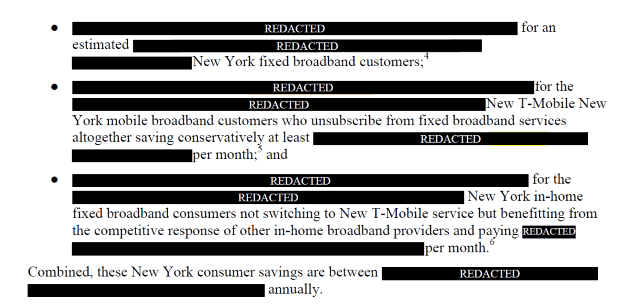
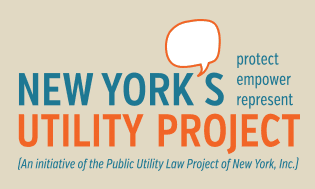 The merger of the two wireless companies requires state and federal approval. Alaska, Colorado, Delaware, Georgia, Louisiana, Maryland, Minnesota, Nevada, Texas, Utah, West Virginia and the District of Columbia have already essentially “rubber-stamped” approval of the merger deal with little comment. Pennsylvania regulators submitted a series of questions that the two companies answered earlier this week.
The merger of the two wireless companies requires state and federal approval. Alaska, Colorado, Delaware, Georgia, Louisiana, Maryland, Minnesota, Nevada, Texas, Utah, West Virginia and the District of Columbia have already essentially “rubber-stamped” approval of the merger deal with little comment. Pennsylvania regulators submitted a series of questions that the two companies answered earlier this week.
 Pai says giving companies like Verizon the permanent right to manage the kinds of text messages allowed on their networks is a good way to stop texting spam.
Pai says giving companies like Verizon the permanent right to manage the kinds of text messages allowed on their networks is a good way to stop texting spam.
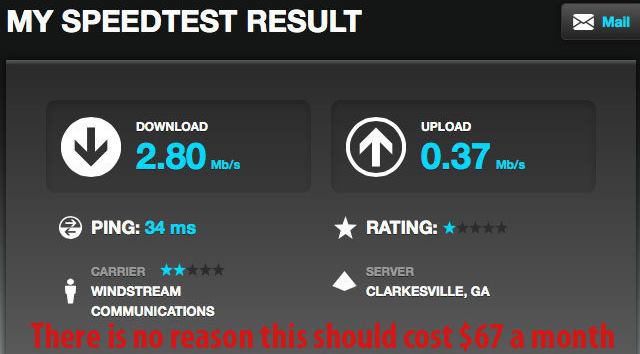
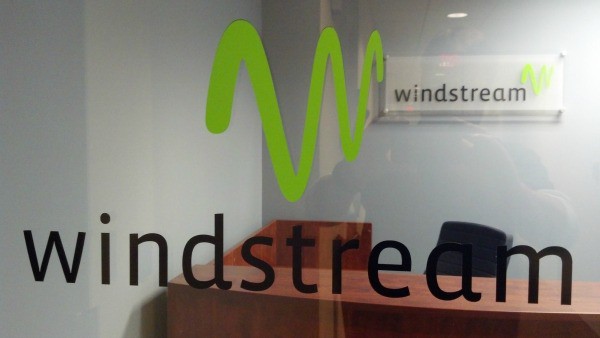 “It took a service technician coming out to make it clear to us there was no way we would ever get faster speed because there was too much copper wiring between their office and our homes,” Brown said. “The technician felt for us, and about half of his service calls were disappointing customers like us.”
“It took a service technician coming out to make it clear to us there was no way we would ever get faster speed because there was too much copper wiring between their office and our homes,” Brown said. “The technician felt for us, and about half of his service calls were disappointing customers like us.”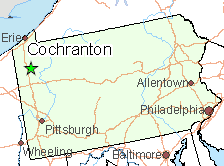 “We are paying for internet speed that we aren’t receiving,” Ruth complained. “It is so slow that we have a hard time getting a short 50 second video to load. Forget watching a YouTube video, it’s not going to happen.”
“We are paying for internet speed that we aren’t receiving,” Ruth complained. “It is so slow that we have a hard time getting a short 50 second video to load. Forget watching a YouTube video, it’s not going to happen.” Wall Street balks at the dollar amounts it would take for Windstream to fully update its network to offer broadband speeds that were common for cable subscribers a decade ago. That kind of network investment would likely drive down the share price, impact shareholder dividends or stock buyback plans, and increase debt. Instead, many phone companies are hoping the federal government will come to the rescue and subsidize rural network improvements through the FCC’s Connect America Fund or government grants. But many of those grants won’t deliver service improvements to existing customers. Instead it will allow rural phone companies to bring broadband to customers who never had it before.
Wall Street balks at the dollar amounts it would take for Windstream to fully update its network to offer broadband speeds that were common for cable subscribers a decade ago. That kind of network investment would likely drive down the share price, impact shareholder dividends or stock buyback plans, and increase debt. Instead, many phone companies are hoping the federal government will come to the rescue and subsidize rural network improvements through the FCC’s Connect America Fund or government grants. But many of those grants won’t deliver service improvements to existing customers. Instead it will allow rural phone companies to bring broadband to customers who never had it before.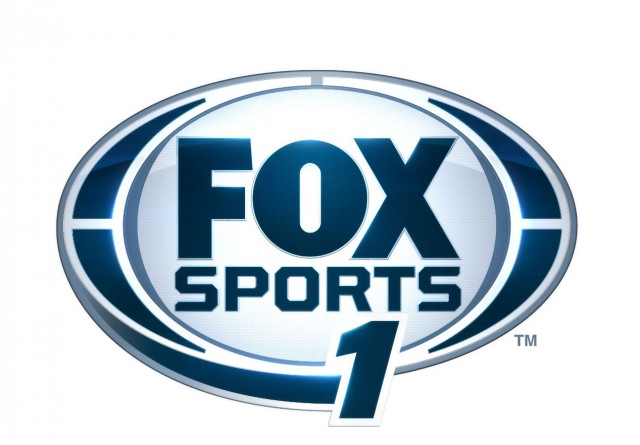 Amazon wants to be a major player in live regional sports television, aggressively bidding for the 22 regional sports network that Disney acquired from 21st Century Fox, according to
Amazon wants to be a major player in live regional sports television, aggressively bidding for the 22 regional sports network that Disney acquired from 21st Century Fox, according to 